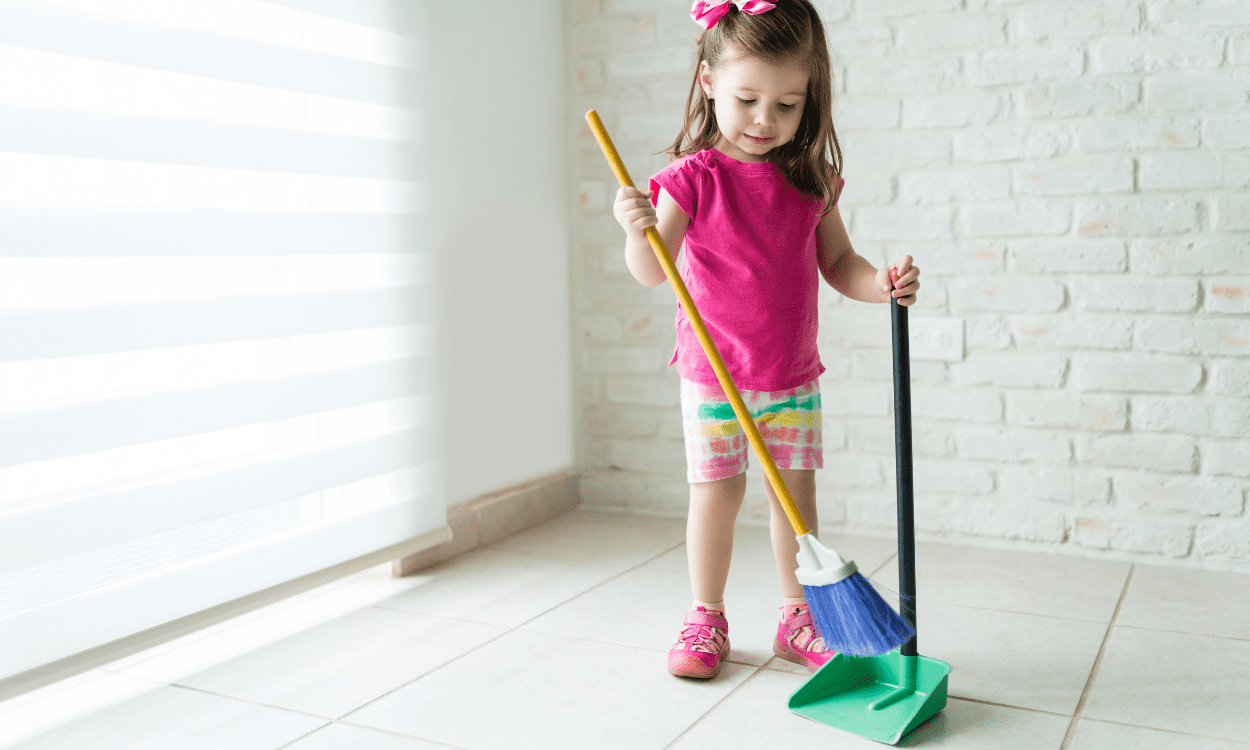Teaching a child to care for his or her environment is an essential step in early childhood development. In fact, the Montessori environment is the child’s greatest teacher — it can act as a mirror to the child’s own personality.
Let’s talk about some simple activities your child can perform to care for their environment and reach vital developmental milestones in the process.
Flower arranging
Caring for one’s space is a central tenet of the Montessori philosophy. This refers to both physically cleaning and beautifying as well as appreciating and respecting one’s space. Flower arranging is an excellent activity to help your child do both!
Together, you and your child can go through the sequence of filling a vase with water, cutting the flower stems to size, and arranging them in a purposeful way. Like many practical life activities, this task offers “control of error” because the child must accomplish the steps in a specific order to succeed.
Feel free to encourage your child’s creativity here! This can help them feel a sense of ownership over the beauty of their space.
Tidying the house
Depending on where your child is developmentally, they could also help you beautify the home by cleaning it. Asking your child to help with chores can help them feel responsible for the cleanliness of their home.
Different chores can offer different developmental benefits too. For example, sweeping and mopping the kitchen floor can help your child engage their larger muscle groups and work on their gross motor skills. For fine motor skill practice, you could ask your child to wipe up a spill on the counter or dry dishes.
Organizing
When your child takes out their toys and leaves them all across the floor, you might feel compelled to put them away yourself for the sake of ease. But your child could quickly learn that every time they make a mess, it will simply disappear without their involvement.
Instead, you could instill the understanding that they’re responsible for the toys they play with and the mess they make. The most common Montessori-approved method is to make clean-up part of your child’s daily routine. “You can play before dinner, but you have to put all your toys away when you’re done.”
Setting expectations is key to creating healthy habits. That’s why a Montessori education can help to reinforce the lessons you’re teaching at home as well as teach your little ones so much more!
Inspire Kids Montessori gives your child the structure and the personalization they need to fully realize their potential. Schedule a tour with us today with no obligation, and discover the IKM difference.

